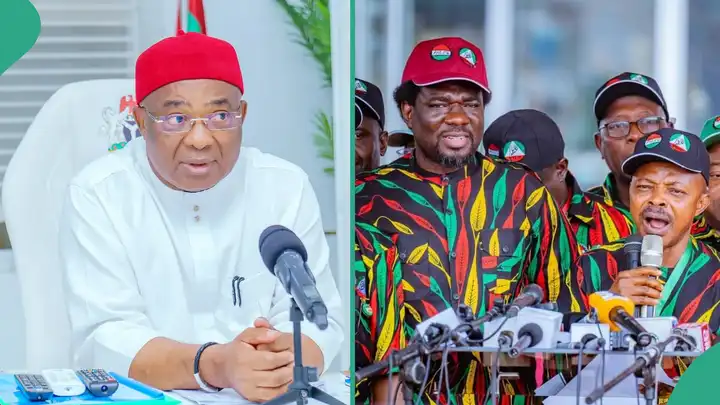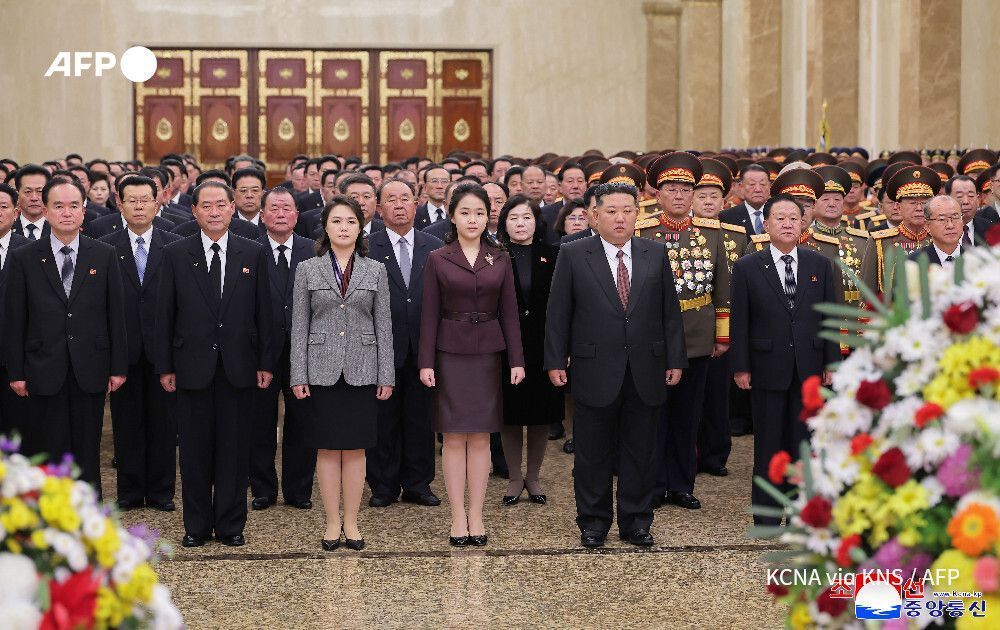
• Another conflict over take-off month imminent as FG piles up arrears
• Less than 10 states may be able to pay salaries from IGRs
• Zamfara, others still paying below N30,000
• Widening gap between estimated, actual IGRs threatens ability to pay
• Defaulting governors will be prosecuted, Falana insists
• South-East governors weigh options, may pay less than N70,000
Over two months after the new minimum wage law was passed, federal and state governments continue to dilly-dally on its implementation even as governors have embarked on another level of negotiations with state union leaders for a possible compromise.
This comes as the government has broken the truce with organised labour and increased the price of fuel by over 80 per cent.
State governments at the same time are flirting with the possibility of getting away with a lower minimum wage – aligning with the debate on decentralised minimum wage setting. Whereas there is hope the South-East states could start implementation soon, some of the governors and state labour unions are neck-deep in another negotiation for possible compromises, which could mean, compelling the workers to accept less than N70,000 monthly salaries.
With the cost of transportation increasing by as much as 100 per cent and pushing up the general cost of living significantly, employees are still placed on the old wage level.
This rising mismatch between income and cost of living has huge consequences for already abysmally low productivity and poor service delivery in the public sector while absenteeism is said to have assumed a worrisome pattern.
In reminiscence of the previous era, there is growing worry over the fate of workers as regards the implementation of the N70,000 minimum wage. Some governors are already flirting with the possibility of striking a deal at a wage level that suits their peculiar fiscal position.
In the five years the N30,000 minimum wage was in force, not all states were able to pay even some governors were said to have started paying in the wake of the review negotiation.
For one, Zamfara announced in May 2024 that it would implement the N30,000 wage following a two-week ultimatum to defaulting states by organised labour.
According to open-source data, as of the time when labour threatened a shutdown, 22 states had implemented the wage floor while 14 were yet to begin implementation. The 14 defaulting states were Abia, Bayelsa, Delta, Enugu, Nasarawa, Adamawa, Gombe, Niger, Borno, Sokoto, Anambra, Imo, Benue and Taraba.
Outright default in salary payment or staggered payment, another issue across states from far north to south, may also be carried over to the regime as subnational entities and the Federal Government continue to battle weak fiscal conditions that are turbocharged by the high cost of finance, stagnate revenue and rising expenditure.
According to Open States, a platform tracking the fiscal repositories of states, only Lagos, Kano, Anambra, Edo, Enugu, Imo, Kaduna, Kwara, Osun, Ogun and Zamfara can pay their salaries from their internally generated revenues (IGRs) this year without recourse to the Federation Account Allocation Committee (FAAC).
On the other hand, the wage bills of the 24 other states were larger than their IGRs, which have been sluggish or stagnated. At the time the report was released, Rivers State had not uploaded its budget for the year.
Rivers proposes to spend N252.9 billion on personnel costs this year, an amount that is almost 10 per cent higher than the N231 billion it hopes to realise from IGRs. That brings the number of states that would need FAAC to pay their workers to 25.
This year’s budget estimates were prepared without the foresight of the current wage floor. With the 133 per cent increase in the wage floor, less than 10 states, as opposed to 11 highlighted by Open States, may be able to fund personnel costs independently.
The widening gap between states’ IGR projections and performances in recent years is another challenge. For instance, Akwa Ibom underperformed by 44 per cent last year, falling from N59.85 billion to N33.55 billion while Kano fell from N40.33 billion to N29.22 billion actual performance.
This year, the state (Kano) is projecting a nearly 250 per cent increase to push the IGR to N101.96 billion, on account of which Open States said it would not FAAC inflow to clear its estimated N87.46 billion personnel cost. If its projection collapses and actual performance falls to the last three years’ average, it would need over twice its IGR to pay its wages.
At the federal level, implementation has not started, and the new wage floor has not kicked off, stretching the number of arrears to be paid to about six months already. The old regime ended in April. While the Federal Government has outlined its readiness to begin the implementation date from July 2024, labour kicked against the date saying the proper timeline is from the end of April which was when the old law expired.
Agitations for the new wage law are far from over as other categories of workers are also expected to benefit from the adjustment which may likely engender another round of negotiations albeit at sectoral levels – referring to minimum wage consequential adjustment.
With the liberalisation of the FX market that guarantees more naira to the state governments and the removal of petrol subsidy that also swells up the allocation of states, a human rights lawyer, Femi Falana said that state governors that failed to implement the new wage should be prosecuted.
Working with the labour centres, Falana said defaulters would be dragged before the courts. Whether state governments can be sued or compelled to implement the national wage law remains a debate.
Labour unions as well as state councils are expected to engage in this exercise once the full implementation of thenational minimum wage begins.
While some state governments have indicated their interest in paying the new wage, others may issue a threat of mass sack of workers to pay what they deem fit.
States that may have a genuine reason to complain about lack of resources to pay the new wage are Cross-River, Ogun, Ekiti, Gombe, Kwara, Ebonyi, Osun, Kaduna, Kogi and Plateau because they receive the least allocations.
Another issue that will hit the state governments is the decision of the Supreme Court that allocations to local government councils should go to them directly.
The faithful implementation of this judicial decision will hit the state governments below the belt and this may provide the alibi they need in order not to implement the new N70,000 national minimum wage law.
Though the Nigeria Labour Congress (NLC) and its Trade Union Congress (TUC) do have the list of states that are either paying the wage or committing to paying it, there are indications that Lagos and Edo states are already paying about N70,000 monthly salary.
Other states that have shown considerable commitment are Gombe, Osun, Benue, Borno, Oyo, Nasarawa, Ondo (where the gubernatorial election is imminent), Kogi and Adamawa.
In the meantime, as at the last count, 27 states have raised committees on the implementation of the new wage floor.They are Nasarawa, Bayelsa, Delta, Osun, Ekiti, Zamfara, Benue, Enugu, Taraba, Gombe, Kogi, Enugu, Adamawa, Niger, Plateau, Kebbi, Sokoto, Anambra, Imo, Ebonyi, Oyo, Akwa Ibom, Bauchi, Katsina, Kaduna, Cross River and Yobe.
However, the level of implementation by state governments remains sketchy as information on the implementation status is unclear.
Also, while there is no independently verifiable information, there are reports that states are still paying below N30,000. A source told The Guardian last night that Zamfara is among states that have yet to implement the old wage cap when workers are clamouring for the implementation.
Zamfara state has a budget of N118.4 billion for its recurrent expenditure this year out of N163.5 billion revenue but has an overall expenditure of N426.6 billion leaving it with a N263.1 billion deficit budget.
No state in the southeast region has started paying the new wage but there are indications that some would commence soon.
Each of the five governors has either promised to pay or set up a committee to see to its implementation.
In Enugu State, Gov. Peter Mbah in April this year promised to pay N25,000 as palliative to workers of the state to cushion the effect of current economic difficulties on them.
Mbah promised that he would continue the payment until an agreement was reached on the implementation of the new minimum wage for workers in the country. He has since April made the payment of N25,000. The money comes as part of the salary of the state’s civil servants.
With the conclusion of the negotiation of the new minimum wage, the governor set up the Implementation Committee for the new wage in August this year. The committee was given one month to submit its recommendations. However, the committee’s recommendations have neither been made public nor implementation of the new minimum wage has commenced.
In Abia State, there are indications that the payment of the new minimum wage may begin this month.
The state Information Commissioner, Prince Okey Kanu, told The Guardian that the decision was taken during the State Executive Council (SEC) weekly meeting held that Monday.
The Commissioner, however, did not disclose the new amount payable stating that it will depend on the approval of the amount that the state committee and labour unions working on the new minimum wage will come up with.
Also, the Anambra State governor, Charles Soludo, promised to begin the implementation in October this year. The ex-Central Bank of Nigeria’s (CBN) governor, who earlier expressed doubt about the state’s ability to pay, did not indicate how much he would pay.
In Ebonyi state, Gov. Francis Nwifuru has also promised to pay the N70,000 but did not disclose when he would begin payment.
Imo State Governor, Hope Uzodimma, has assured workers that his administration was committed to commence payment of N70,000 national minimum wage within the next two months.
But he was not specific on the commencement date.
Uzodimma disclosed this on October 3, after a closed-door meeting with the leaders of the Nigeria Labour Congress (NLC), stressing that the state government and labour leaders were working out the modalities on the payment, describing the national minimum wage as “proper and appropriate”.
He accepted that there was a high cost of living which necessitated better incentives for the workers, across the board, though, he could not say both the effective date and date of commencement of payment.
The state government also distributed rice and fertilizers, which beneficiaries decried as “jokes”.
Mrs Comfort Chioma, who got about 2kg of fertilizer last week after spending N10,000 queried what she was going todo with it.
She said: “I received half the paint of fertilizer as a palliative. Please tell me where I am going to start applying it in my farm. Those in government should stop mocking us in the name of palliatives. Some people over there are using it to enrich their pockets, saying that they are extending them to us.
“Last time, I got about three cups of rice. Is it palliative for how many hours of mouths to feed?”
Speaking in the same vein, Johnson Agu, said: “This thing called palliative is an organised means of defrauding us by those in the government. This should stop. Who is receiving their much-touted palliative?”
On September 8, 2023, Governor Seyi Makinde of Oyo State, under the Sustainable Action for Economic Recovery (SAfER), a programme designed to address economic hardship and food distribution claimed to have reached out to the most vulnerable in all the 33 local governments.
The programme was to fulfil and implement promises made by his administration to mitigate the hardship resulting from the May 29, 2023 removal of the fuel subsidy by President Tinubu.
The food distribution exercise, which then came in phases consisted of only a 25 per cent cost reduction of the food to be sold to the identified poorest of the poor in the state. However, the state has yet to commence payment of minimum wage.
Gov. Seyi Makinde has promised to implement the minimum wage of N70,000 once the consequential salary adjustment negotiations are completed.
Also, Ogun State has not started paying workers the minimum wage.
The Chief Press Secretaries to the Ondo and Osun State governors, Ebenezer and Adeniyan and Malam Rasheed Olawale, disclosed to The Guardian that their principals have not commenced payment of minimum wage.
According to Olaniyan, the state has set up a strategy committee to work out the structure of the payment. A structure is still being drawn but no date has been picked yet to commence the payment.”
Olawale on his part said Osun State governor has set up a technical committee to work out how the minimum wage will be paid to all levels of civil servants.
He said the committee is still working and immediately submitted its report and the cabinet would approve it for payment.
Gov Babajide Sanwo-Olu’s administration is yet to fulfil its promise to implement the new minimum wage approved by the Federal Government, despite initial assurances.
However, to cushion the effects of economic hardship, the state government has been paying an additional N35,000 “wage allowance” to workers since January 2024, effectively increasing their take-home pay.
A civil servant, who preferred anonymity, confirmed this development to The Guardian that, “Since the fuel increment, the governor implemented an extra incentive across the civil service system. It’s called wage allowance. We believe that by the time the governor is ready to implement the minimum wage, he will pay arrears.”
While acknowledging the unfulfilled minimum wage promise, the civil servant noted that the implemented palliative programmes, such as “Ounje Eko” and “Eko Cares”, have shown promise in reducing hardship.
Public affairs analyst, Kunle Egbetokun, emphasised that Gov. Sanwo-Olu’s administration will be judged on its ability to fulfill outstanding promises and sustain existing initiatives.
“Nevertheless, the additional wage allowance and palliative programmes demonstrate the government’s commitment to supporting residents during difficult times,” Egbetokun stated.
However, “Ounje Eko”, a component of the “EKO CARES” initiative, aimed at providing relief to vulnerable households, has been suspended due to alleged abuse by participants. Hon Gbolahan Yishawu disclosed that the programme’s suspension was necessary as people took advantage of the system, hijacking the government’s subsidy.
However, the state “Free Transportation Initiative” remains ongoing, offering a 25 per cent rebate on public transportation, including BRT, train, and ferry services.
In a similar vein, Governor Biodun Oyebanji, of Ekiti State is yet to commence the payment. The governor is still assuring the state’s workers that his administration would implement the new minimum wage once necessary discussions are finalised.
Although he has continued to pay the N15,000 Wage Award, which was meant to cushion the effects of inflation pending when he would implement the new minimum wage payment.






